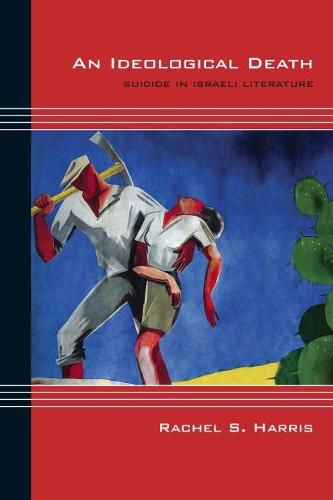Readings Newsletter
Become a Readings Member to make your shopping experience even easier.
Sign in or sign up for free!
You’re not far away from qualifying for FREE standard shipping within Australia
You’ve qualified for FREE standard shipping within Australia
The cart is loading…






An Ideological Death: Suicide in Israeli Literature examines literary challenges to Israel’s national narratives. The centrality of the army, the mythology of the new Jew, the vision of the first Israeli city, Tel Aviv, and the very process by which a nation’s history is constructed are confronted in fiction by many prominent Israeli writers.
Using the image of suicide, A. B. Yehoshua, Amos Oz, Etgar Keret, Yehudit Katzir, Alon Hilu, Yaakov Shabtai, Benjamin Tammuz, and Yehoshua Kenaz each engage in a critical and rhetorical process that examines the nation’s formation and reconsiders myths at the heart of the Zionist project. In Israeli literature, suicide represents a society’s compulsion to create impossible ideals that leave its populace disappointed and deluded. Yet, as Rachel S. Harris shows, even at their harshest these writers also represent the idealism that helped build Israel as a modern nation-state.
$9.00 standard shipping within Australia
FREE standard shipping within Australia for orders over $100.00
Express & International shipping calculated at checkout
An Ideological Death: Suicide in Israeli Literature examines literary challenges to Israel’s national narratives. The centrality of the army, the mythology of the new Jew, the vision of the first Israeli city, Tel Aviv, and the very process by which a nation’s history is constructed are confronted in fiction by many prominent Israeli writers.
Using the image of suicide, A. B. Yehoshua, Amos Oz, Etgar Keret, Yehudit Katzir, Alon Hilu, Yaakov Shabtai, Benjamin Tammuz, and Yehoshua Kenaz each engage in a critical and rhetorical process that examines the nation’s formation and reconsiders myths at the heart of the Zionist project. In Israeli literature, suicide represents a society’s compulsion to create impossible ideals that leave its populace disappointed and deluded. Yet, as Rachel S. Harris shows, even at their harshest these writers also represent the idealism that helped build Israel as a modern nation-state.